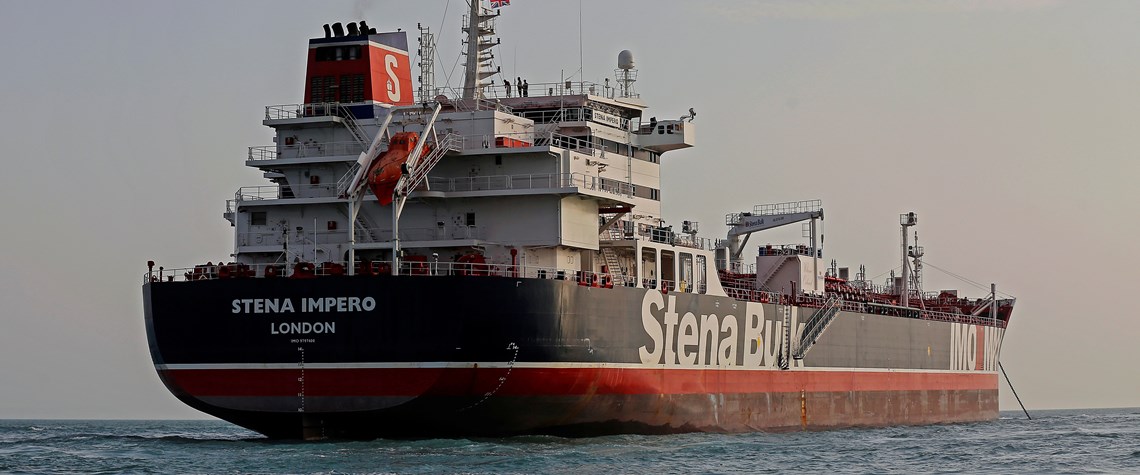Immediate threat to Gulf oil flow lifted
The UK and Iran have shown that they do not want the seizure of a British-flagged oil tanker to be the trigger for an armed conflict
The decision by members of Iran's Islamic Revolutionary Guards Corps to board the Stena Impero off Oman and force it to sail to Bandar Abbas might well have been the spark to ignite a war in the Gulf. In the event, the UK and Iranian governments are showing clearly that they do not want this to happen. The UK's foreign minister, Jeremy Hunt, while describing the seizure of the tanker as an act of piracy, stressed his country's "desire to de-escalate" the crisis. Instead of direct military action to resolve the tanker issue, he proposed working with other European nations to work out a joint strategy to protect ships passing through the Strait of Hormuz. Iran's foreign minister, Mohammad Java

Also in this section
4 March 2026
The US president has repeatedly promised to lower gasoline prices, but this ambition conflicts with his parallel aim to increase drilling and could be upended by his war against Iran
4 March 2026
With the Strait of Hormuz effectively closed following US-Israel strikes and Iran’s retaliatory escalation, Fujairah has become the region’s critical pressure release valve—and is now under serious threat
3 March 2026
The killing of Iran’s Supreme Leader Ayatollah Khamenei in US–Israeli strikes marks the most serious escalation in the region in decades and a bigger potential threat to the oil market than the start of the Russia-Ukraine crisis
2 March 2026
A potential blockade of the Strait of Hormuz following the escalating US-Iran conflict risks disrupting Qatari LNG exports that underpin global gas markets, exposing Asia and other markets to sharp price spikes, cargo shortages and renewed reliance on dirtier fuels







